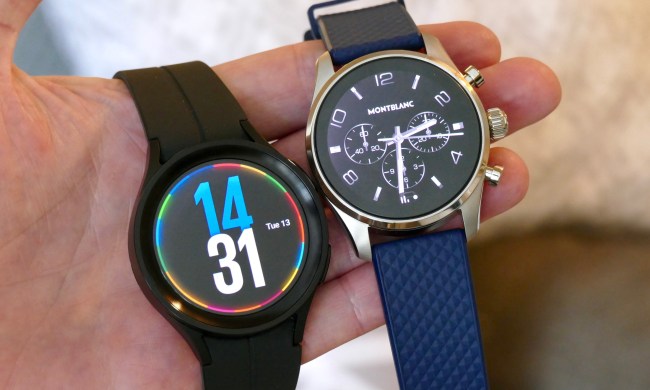 Making good on its promise when HTML 5-based Firefox OS was first announced, Mozilla has revealed the first two smartphones that will run the new mobile operating system. Developed with the help of Telefonica and Geekphone, the two devices are called the Keon and Peak.
Making good on its promise when HTML 5-based Firefox OS was first announced, Mozilla has revealed the first two smartphones that will run the new mobile operating system. Developed with the help of Telefonica and Geekphone, the two devices are called the Keon and Peak.
The devices – set for a February release – aren’t full retail models, but rather meant for developers that are looking for an early start on the platform.
The Keon takes the low level spot in terms of specs. It comes with a 1GHz Qualcomm Snapdragon S1 processor and 4GB of internal storage, no word on included RAM. It will all be faced with a 3.5-inch HVGA display and a 3-megapixel rear-facing camera (no front-facing cam). The Keon will also support microSD cards for expandable storage and staples like Wi-Fi and GPS.
The Peak, on the other hand, will occupy a more luxury space for Firefox OS. A dual-core 1.2GHz Snapdragon S4 processor will bring the speed and a higher quality 4.3-inch qHD display has the beauty covered. It’s finished off with an 8-megapixel rear facer and a 2-megapixel cam up front, but unfortunately sticks to the 4GB of storage. The Peak also ships with a higher capacity battery.
“Developer preview phones will help make the mobile web more accessible to more people. Developers are critical to the web and to Mozilla’s mission to make the web accessible to everyone,” the director of development at Mozilla, Stormy Peters, wrote in a blog post Tuesday.
Backing up that statement, Mozilla will host “hack days” on January 26 to give developers the opportunity to “celebrate Firefox OS” by learning the APIs and building as many apps as they can.
It’s been a long road for Mozilla’s Firefox OS, which was originally teased in February 2012 (called Boot 2 Gecko at that time), but has yet to enter the real smartphone race against iOS, Android, and Windows Phone 8. One of the hurdles Mozilla needed to cross was finding partners for launch, a position filled by Telefonica, one of the first companies to show support for Firefox OS.
On the bright side, Mozilla is clearly making progress towards the end goal. In December, it released a beta version of the Firefox OS to be used in a desktop simulator and now we have official word on the first devices to run the software.


